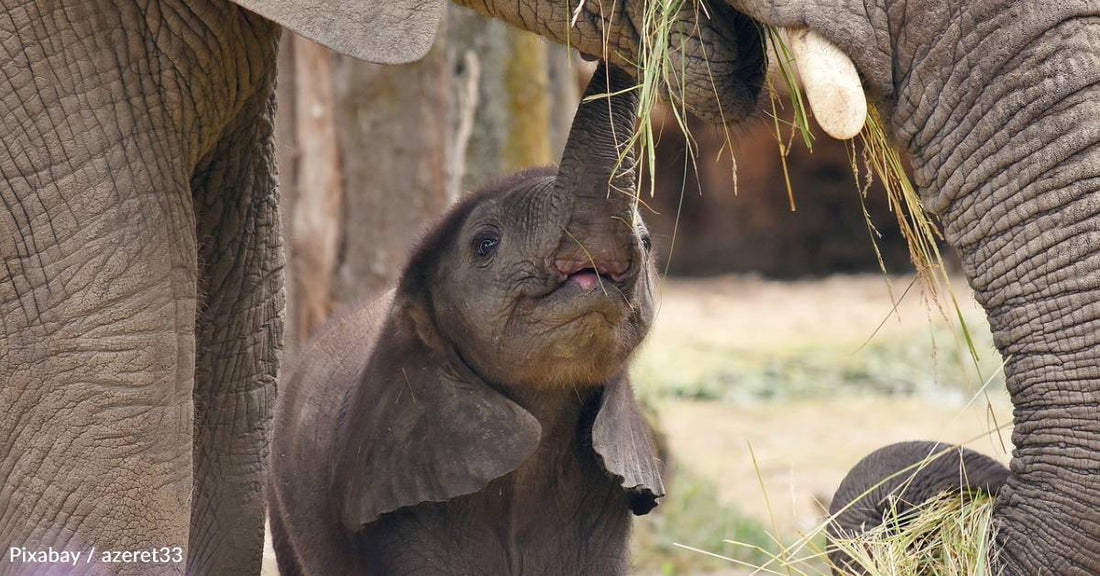This World Elephant Day, Learn More About Threats to Elephants and How You Can Help
Michelle Milliken
Pixabay / azeret33
Elephant populations used to be plentiful across Africa and Asia. In fact, in Africa, their numbers were as high as 10 million in 1930. Now, though, that figure has fallen to about 415,000. Matters are even worse for Asian elephants, who number only about 50,000 these days. World Elephant Day, held on August 12, celebrates these majestic animals and brings awareness to their plight, with all three species either endangered or critically endangered. Mark the occasion by learning why these animals are important, why they’re threatened, and how you’ve helped us work to save them.
Why Elephants Are Important
Elephants are ecosystem engineers. They travel long distances and eat a wide variety of plants, which helps them disperse all sorts of seeds through their dung. They also trample down vegetation while they travel and forage, producing more open space and grassland that can feed grazers like buffalo and zebras. These animals then feed the predators higher up on the food chain.

Even further, African forest elephants are allies against climate change. The plants that they trample down help limit vegetation density, which allows hardier trees to grow further and store more carbon.
Why They’re Threatened
Elephants have prominent tusks, made of ivory, which is a prized item. According to WWF, about 17,000 African elephants were poached each year for their ivory over the past decade. Many countries have ivory markets, some legal and some illegal. Internationally, though, there is an ivory trade ban.
Human-elephant conflict is a growing threat, as well. This comes as elephant habitat is increasingly lost and fragmented, largely due to agricultural expansion. As humans encroach on their habitat, there is less food and water available to them. They have to compete for these resources with humans and agricultural interests.

This competition leads elephants to raid crops, destroying much of them with their foraging. In retaliation, elephants are often killed. Human-wildlife conflict leads to an estimated 200 elephant deaths in Sri Lanka each year, around 100 in India each year, and more than 100 in Kenya each year.
Many elephants were also used in logging operations in Thailand before logging was banned in 1989. Because they had become reliant on human care and much of their habitat was gone, it was unlikely that releasing them into the wild would be successful. It may have also led to more human conflict.
As a result, many of their carers turned to elephant tourism as a way to continue to feed and care for them. Some conditions in these operations are not ideal, however, and it can be difficult to afford the feed they require. Weight issues, foot problems, and wounds are often found in these elephants, as well.

How We’ve Helped
We’re committed to helping save the elephant and providing care for those in captivity. We’ve worked on a variety of projects to this end.
COVID-19 has caused issues in the tourism industry over recent years, meaning that places that care for and share experiences with animals have struggled financially. Greater Good Charities teamed up with the Thai rescue Elephant Nature Park - which offers a home to injured, neglected, and elderly elephants – to ensure they had enough food while operations were temporarily closed.
With a grant that was matched by the Abraham Foundation, the park was able to purchase feed to cover the revenue shortfall. They were also able to help elephants in other camps across Thailand, which has spurred discussions on more ethical models of operation.

One way to stop elephants from crop raiding is to use deterrents. Some successful methods have included chili and tobacco-based deterrents, growing crops elephants don’t like, a variety of smelly repellents, and honeybees, which have been found to make elephants nervous.
Greater Good Charities has worked with partners in Tanzania to employ that last method, supporting the construction of beehive fences around farmland. This has been found to be an effective way to limit human-elephant conflict and resulting retaliation. Crop loss may also be reduced by up to 80%, while human lives are saved, as well. As an added benefit, the production of honey provides extra income to communities.
With your free clicks, trivia participation, shopping for a cause, and direct donations, you’ve helped ensure these projects happen. If you’d like to celebrate World Elephant Day by joining us on similar efforts, click below!
Michelle has a journalism degree and has spent more than seven years working in broadcast news. She's also been known to write some silly stuff for humor websites. When she's not writing, she's probably getting lost in nature, with a fully-stocked backpack, of course.




















